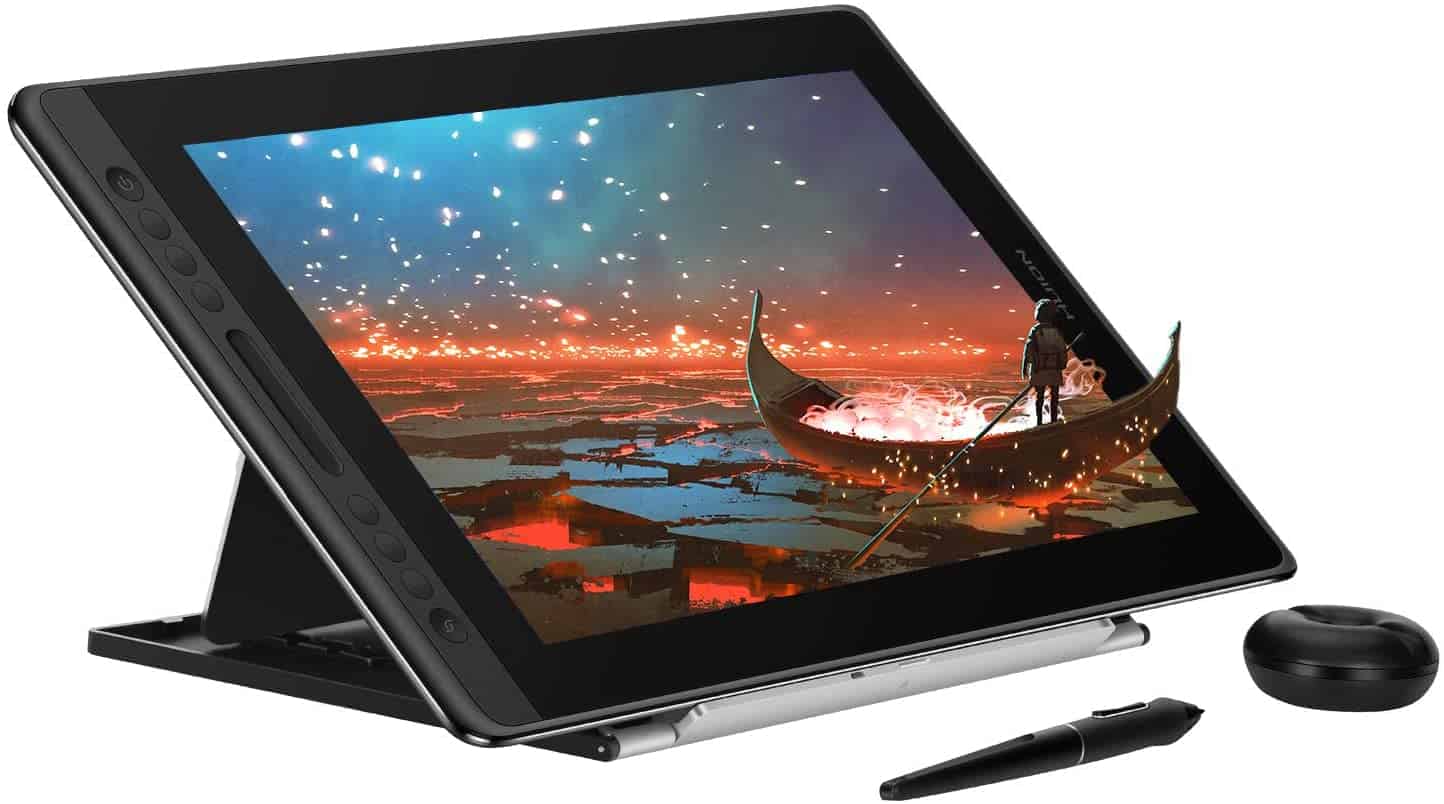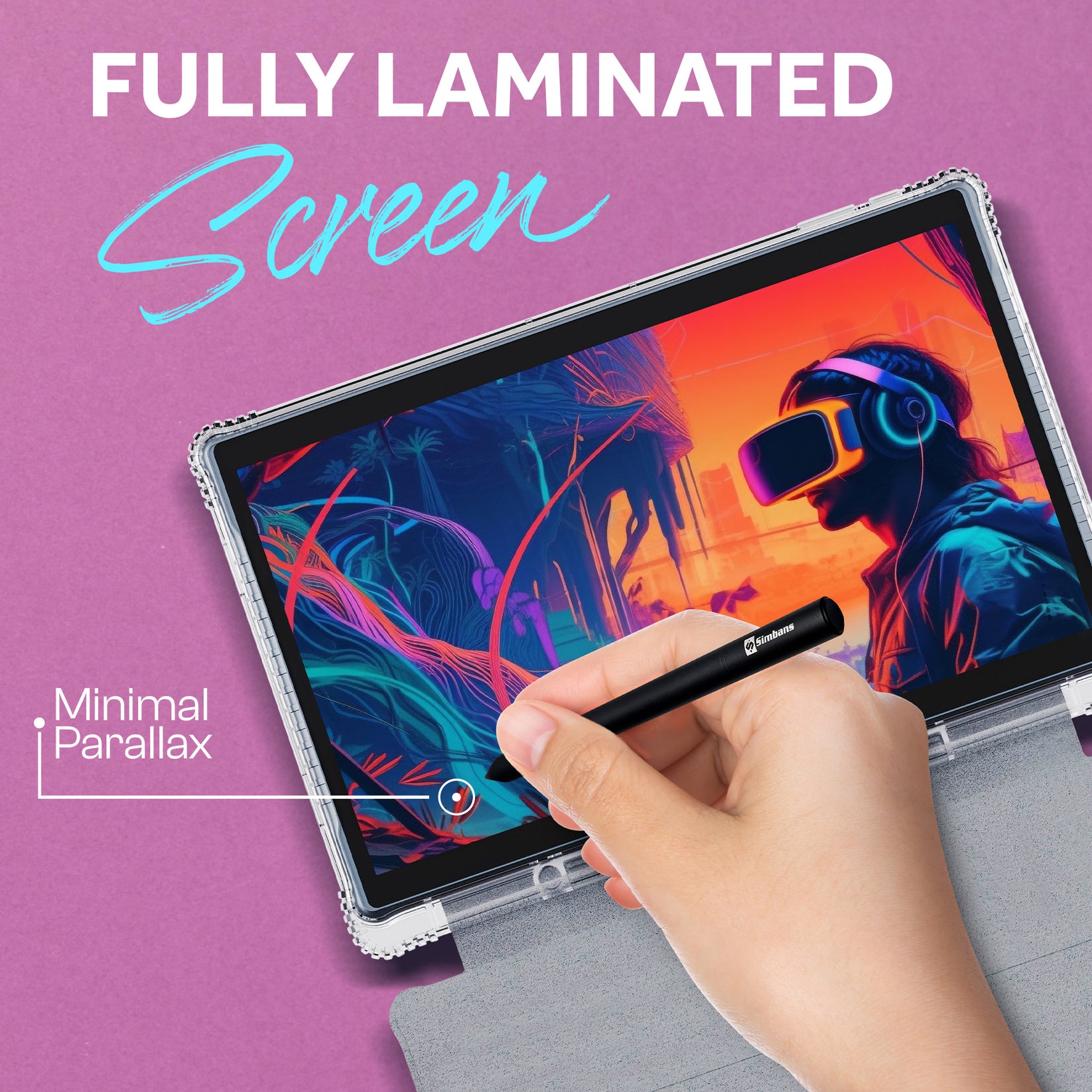Stand Alone Drawing Tablet With Screen

Imagine a crisp autumn morning, sunlight streaming through your window as you settle down with a steaming mug. Before you lies a sleek, minimalist device – not a laptop, not a tablet in the traditional sense, but a portal to boundless creativity. A world where digital art feels as natural as putting pencil to paper, untethered from the constraints of a computer.
This is the promise of the stand-alone drawing tablet with a screen, a device rapidly gaining traction among artists, designers, and creatives seeking a more intuitive and portable digital art experience. These devices offer a self-contained ecosystem for digital art creation, eliminating the need for a separate computer and providing a seamless, immersive workflow.
The Rise of the Untethered Artist
The concept of drawing tablets isn't new. Wacom, a pioneer in the field, has been producing pen tablets for decades, requiring connection to a computer. However, the evolution towards stand-alone devices marks a significant shift, addressing the need for greater flexibility and a more streamlined creative process.
One of the key drivers behind this trend is the increasing power and efficiency of mobile processors. Companies like Apple and Samsung are developing chips that rival those found in laptops, allowing these tablets to handle demanding creative applications without a hitch.
This technological advancement, combined with advancements in display technology, has paved the way for vibrant, color-accurate screens and responsive pen input, crucial for a satisfying digital art experience.
Key Features and Benefits
Stand-alone drawing tablets like the iPad Pro with Apple Pencil and the Samsung Galaxy Tab S series with S Pen boast impressive features. High-resolution displays offer stunning visual clarity, while pressure sensitivity and tilt recognition in the pens emulate the feel of traditional art tools.
Furthermore, these devices support a wide range of professional-grade drawing and painting apps, such as Procreate, Clip Studio Paint, and Adobe Fresco. This compatibility allows artists to seamlessly transition from traditional mediums to digital art creation.
The portability of these tablets is a major selling point. Artists can now create on the go, whether in a coffee shop, on a train, or in the great outdoors. This freedom fosters spontaneity and allows for capturing inspiration whenever and wherever it strikes.
Beyond Art: A Versatile Tool
While primarily marketed towards artists, stand-alone drawing tablets have found applications in other fields as well. Designers use them for sketching ideas, creating mockups, and presenting concepts to clients.
Architects and engineers can utilize them for annotating blueprints and creating digital renderings. Even educators are finding innovative ways to incorporate these tablets into their teaching, allowing students to engage with content in a more interactive and creative manner.
The ability to seamlessly switch between drawing, note-taking, and media consumption makes these tablets a versatile tool for a wide range of users. "These devices are not just for artists; they are tools that can empower anyone to express their creativity and enhance their workflow," says Sarah Chen, a digital art instructor at the Rhode Island School of Design.
The Future of Digital Art
The stand-alone drawing tablet market is expected to continue its growth trajectory in the coming years. Improved processing power, enhanced display technology, and a wider range of compatible software will further solidify their position as essential tools for creative professionals.
Competition among manufacturers is driving innovation, leading to more affordable options and a greater variety of features. This increased accessibility will likely democratize digital art creation, allowing more people to explore their creative potential.
The rise of the stand-alone drawing tablet represents a significant step towards a more intuitive and accessible future for digital art. These devices are empowering artists and creatives to break free from the constraints of traditional workflows and embrace a new era of creative expression.
As technology continues to evolve, we can expect even more seamless and immersive digital art experiences, blurring the lines between the physical and digital worlds and unlocking new possibilities for artistic expression.


















